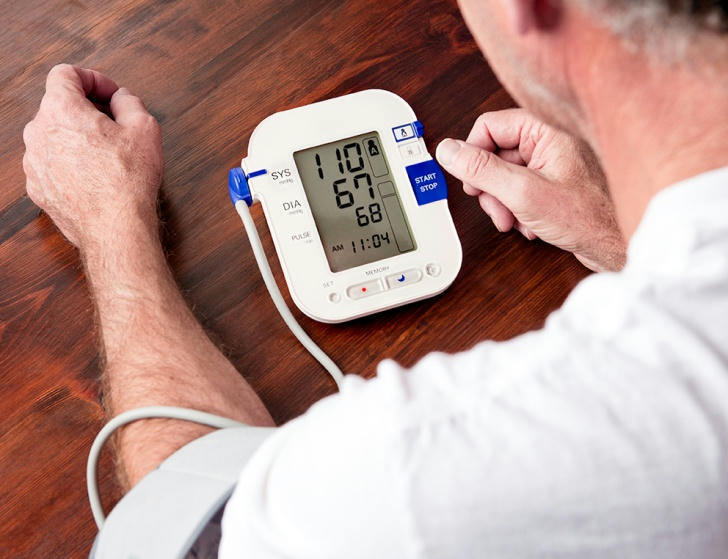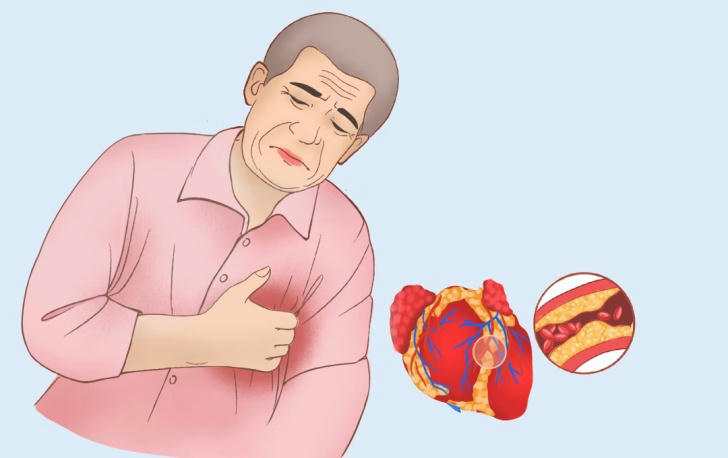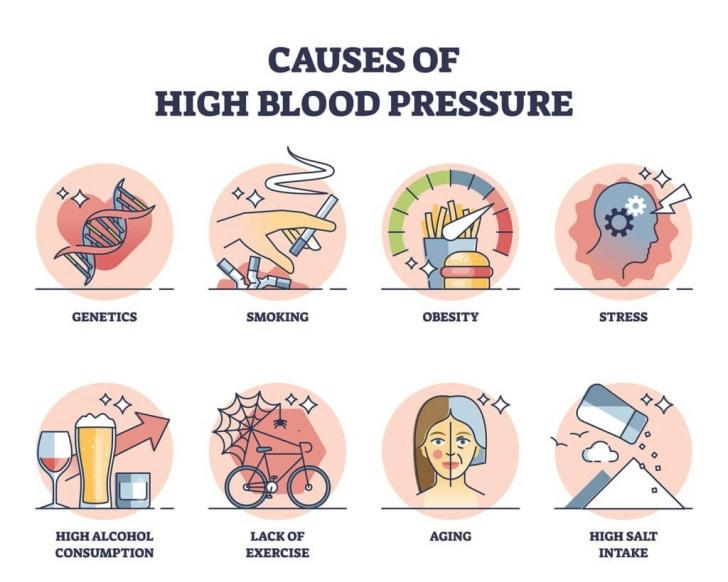Understanding High Blood Pressure: Causes, Risks, and Management
High blood pressure, also known as hypertension, is one of the most common and dangerous health conditions worldwide. It is often called a "silent killer" because it typically has no symptoms but can lead to severe health complications such as heart disease, stroke, and kidney failure if left untreated. According to the American Heart Association, nearly half of all adults in the United States have high blood pressure. Understanding the causes, risks, and management strategies for high blood pressure is crucial for maintaining good health.

What is High Blood Pressure?
Blood pressure refers to the force of blood pushing against the walls of your arteries as your heart pumps it around your body. It is measured using two numbers: systolic pressure (the top number) and diastolic pressure (the bottom number). Systolic pressure measures the pressure when the heart beats, while diastolic pressure measures the pressure when the heart is at rest between beats.
Normal blood pressure is usually around 120/80 mmHg. High blood pressure occurs when the pressure in your arteries consistently exceeds 130/80 mmHg. If left untreated, this can damage your blood vessels and organs, leading to serious health issues.
Causes of High Blood Pressure
There are two main types of high blood pressure: primary (essential) hypertension and secondary hypertension.
Primary (Essential) Hypertension: This is the most common type of high blood pressure and develops gradually over many years. The exact cause is unknown, but a combination of genetic factors, lifestyle choices, and environmental factors contribute to its development. Risk factors for primary hypertension include:
• Age: The risk increases with age, especially after 45.
• Family History: Having a family member with high blood pressure increases your risk.
• Obesity: Excess weight puts added pressure on your heart and blood vessels.
• Lack of Physical Activity: A sedentary lifestyle can lead to weight gain and increased blood pressure.
• Poor Diet: A diet high in salt, fat, and processed foods can contribute to high blood pressure.
• Excessive Alcohol Consumption: Drinking too much alcohol can raise blood pressure.
• Stress: Chronic stress can contribute to increased blood pressure over time.
Secondary Hypertension: This type of hypertension is caused by an underlying health condition. It can develop suddenly and is usually more severe. Causes of secondary hypertension include:
• Kidney Disease: Damaged kidneys can affect your body's ability to regulate blood pressure.
• Hormonal Disorders: Conditions such as hyperthyroidism and Cushing's disease can lead to high blood pressure.
• Sleep Apnea: Sleep disorders, particularly sleep apnea, can increase the risk of hypertension.
• Medications: Certain medications, such as birth control pills, decongestants, and pain relievers, can raise blood pressure.

Risks of High Blood Pressure
High blood pressure often has no symptoms, which is why regular monitoring is essential. Over time, it can damage your heart, kidneys, brain, and other vital organs. Some of the most serious risks associated with hypertension include:
Heart Disease: Hypertension is a major risk factor for coronary artery disease, heart failure, and heart attacks. It can cause the arteries to narrow and harden, making it more difficult for blood to flow to the heart.
Stroke: High blood pressure can lead to the formation of blood clots or cause the blood vessels in the brain to rupture, increasing the risk of stroke.
Kidney Damage: High blood pressure can damage the blood vessels in the kidneys, leading to kidney disease or even kidney failure over time.
Vision Loss: Hypertension can damage the blood vessels in the eyes, leading to vision problems or even blindness in severe cases.
Aneurysm: Increased blood pressure can weaken the blood vessel walls, causing an aneurysm, which is a bulge in the vessel that can rupture and lead to life•threatening bleeding.
Symptoms of High Blood Pressure
In most cases, high blood pressure does not have noticeable symptoms. This is why it's important to have your blood pressure checked regularly. However, in some cases, people with severely high blood pressure may experience:
• Headaches
• Shortness of breath
• Nosebleeds
• Dizziness
• Chest pain

If you experience any of these symptoms, it is important to seek medical attention immediately, as they may indicate a hypertensive crisis or other serious complications.
How to Manage High Blood Pressure
Managing high blood pressure is essential for preventing complications and improving overall health. Here are some steps you can take to control your blood pressure:
Lifestyle Changes:
• Eat a Healthy Diet: Focus on a balanced diet rich in fruits, vegetables, whole grains, lean proteins, and low•fat dairy. The DASH (Dietary Approaches to Stop Hypertension) diet is particularly effective in lowering blood pressure.
• Reduce Sodium Intake: Cutting back on salt can significantly reduce blood pressure. The American Heart Association recommends consuming no more than 2,300 mg of sodium per day, and ideally less than 1,500 mg.
• Exercise Regularly: Aim for at least 30 minutes of moderate•intensity exercise most days of the week. Exercise helps lower blood pressure by improving heart health and circulation.
• Limit Alcohol and Quit Smoking: Both smoking and excessive alcohol intake can raise blood pressure. Quitting smoking and limiting alcohol can help reduce hypertension.
• Manage Stress: Practice relaxation techniques such as meditation, deep breathing, or yoga to manage stress levels.
Medication: If lifestyle changes are not enough, your doctor may prescribe medication to help lower your blood pressure. Common medications for hypertension include:
• Diuretics: Help reduce fluid buildup in the body, lowering blood pressure.
• ACE Inhibitors: Relax blood vessels and reduce blood pressure.
• Beta•Blockers: Help lower heart rate and blood pressure.
• Calcium Channel Blockers: Relax blood vessels and reduce the heart's workload.
Monitor Your Blood Pressure: Regular monitoring of blood pressure at home or at your doctor’s office can help you track your progress and make necessary adjustments to your treatment plan.
Conclusion
High blood pressure is a serious condition that can lead to severe health problems if left untreated. However, with the right lifestyle changes, regular monitoring, and medication, high blood pressure can be effectively managed. By understanding the causes and risks of hypertension, you can take proactive steps to protect your health and live a longer, healthier life. If you have concerns about your blood pressure, it is important to consult with your healthcare provider for a personalized treatment plan.
